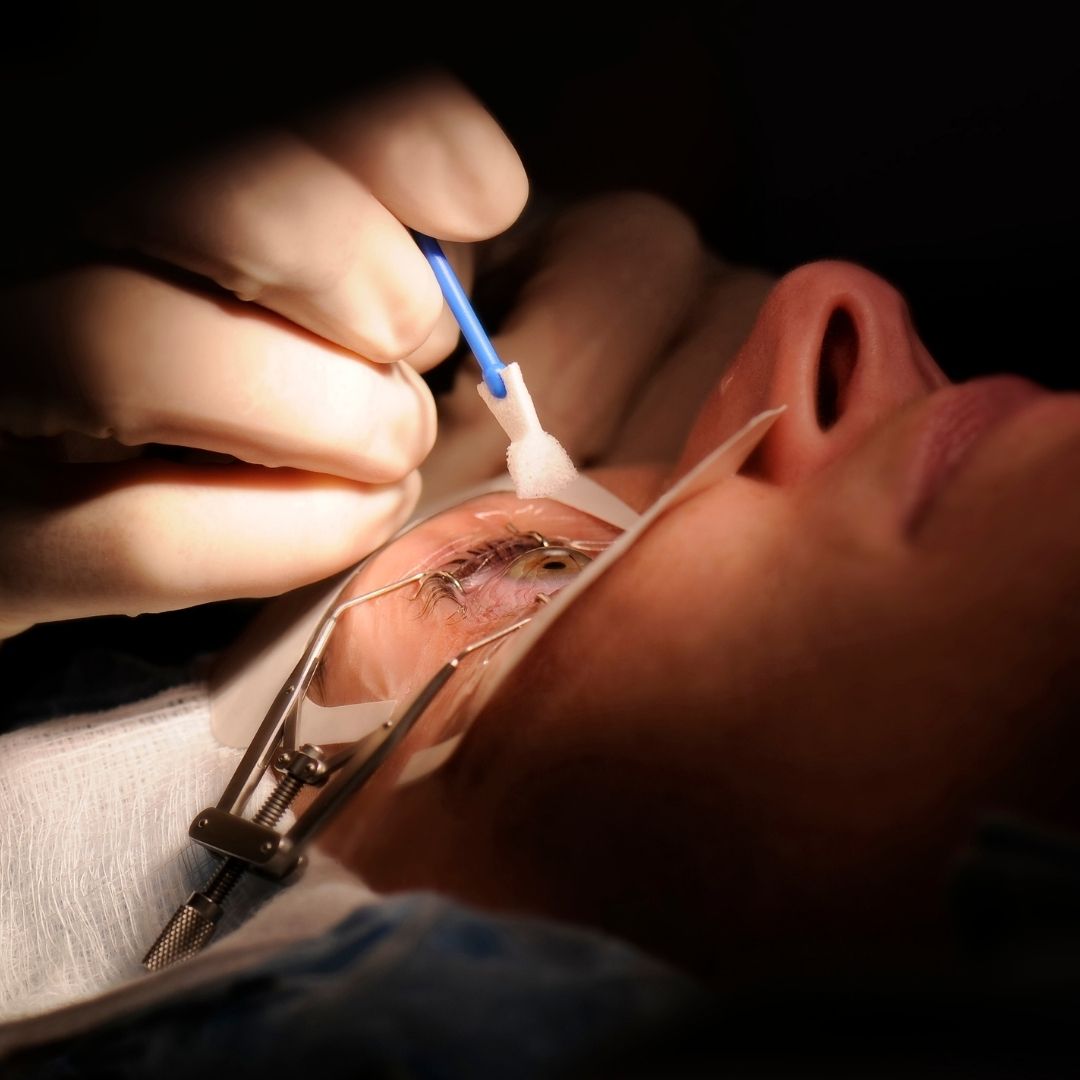
LASIK Eye Surgery Pain
The thought of having surgery can be overwhelming, and the prospect of surgery on your eyes can be even more intimidating. However, laser-assisted in situ keratomileusis (LASIK) has become a common and safe procedure for correcting vision problems. But, does LASIK eye surgery hurt?
In this article, we will explore the answer to this question, as well as provide information on post-surgery care, safety, and more.
Does LASIK Hurt?
One of the most common concerns people have about LASIK is whether or not it is painful. Fortunately, LASIK is a minimally invasive procedure that typically causes little to no pain. Before the surgery begins, you will be given anesthetic eye drops to numb the surface of your eyes. Some patients may feel slight pressure during the procedure, but it is not painful. Additionally, the entire surgery usually takes less than 30 minutes, so any minor discomfort will be short-lived.
While the LASIK procedure itself is not painful, it is important to note that some patients may experience temporary discomfort or irritation after the surgery. This is normal and usually resolves on its own within a few days. However, if you experience severe pain, vision loss, or any other concerning symptoms, it is important to contact your doctor immediately.
Does LASIK Hurt After Surgery?
As mentioned above, some patients may experience temporary discomfort or irritation after LASIK surgery. This is typically mild and can be managed with over-the-counter pain relievers, such as acetaminophen or ibuprofen. However, it is important to avoid taking aspirin or any medications containing aspirin for at least a week after surgery, as it can increase the risk of bleeding and delay healing.
Other post-surgery discomforts that patients may experience include dry eyes , itching, and a sensation of grittiness in the eyes. These symptoms are usually temporary and can be managed with eye drops prescribed by your doctor. It is important to follow all post-surgery instructions given by your doctor to ensure a successful and comfortable recovery.
Here are some factors that can affect how much discomfort you experience after LASIK:
Your pain tolerance: Everyone has a different pain tolerance, so what may feel uncomfortable to one person may not be noticeable to another.
The type of LASIK procedure you have: There are different types of LASIK procedures, and some may cause more discomfort than others. For example, bladeless LASIK, which uses a laser to create the corneal flap, may cause less discomfort than traditional LASIK, which uses a microkeratome blade.
The skill and experience of your surgeon: The skill and experience of your surgeon can also affect how much discomfort you experience after LASIK. A highly skilled surgeon will use advanced techniques and take extra precautions to ensure that the procedure is as comfortable and safe as possible.
Your compliance with post-operative instructions: Following your doctor’s instructions carefully after LASIK is essential for proper healing and can help minimize discomfort. This includes using eye drops as prescribed, avoiding rubbing your eyes, and attending follow-up appointments.
While some temporary discomfort is normal after LASIK surgery, it is important to contact your doctor if you experience severe or persistent pain, as this may be a sign of a complication. In most cases, any discomfort or irritation will gradually decrease over time as your eyes heal.
LASIK surgery does not typically cause significant pain, but some temporary discomfort is normal. By choosing a skilled surgeon, following your doctor’s instructions carefully, and staying in close communication with your doctor during the recovery process, you can help minimize any discomfort and achieve the best possible outcome.
Post-LASIK Eye Care Tips
After LASIK surgery, it is important to take good care of your eyes to ensure proper healing and avoid complications. Here are some post-LASIK eye care tips to help you during the recovery process:
Use eye drops as prescribed: Your doctor will prescribe eye drops to help prevent infection, reduce inflammation, and keep your eyes lubricated. Follow the instructions carefully and do not skip doses. Using these eye drops will also help minimize discomfort and speed up the healing process.
Avoid rubbing your eyes: Rubbing your eyes can irritate the cornea and increase the risk of infection. Try to avoid touching or rubbing your eyes for at least a week after surgery. If you have an itch, use a tissue or a clean cloth to gently pat your eye instead of rubbing it.
Avoid getting water in your eyes: For at least a week after surgery, avoid getting water in your eyes when showering or washing your face. This can increase the risk of infection. You can use a washcloth or a cleansing wipe to clean your face around the eyes.
Wear eye protection: While sleeping, it is recommended to wear eye protection, such as goggles or shields, to prevent accidentally rubbing your eyes in your sleep. It is also a good idea to wear sunglasses or other protective eyewear when you go outside, especially in bright sunlight.
Take it easy: While most patients can return to normal activities within a day or two after LASIK surgery, it is important to avoid strenuous exercise or heavy lifting for at least a week after the procedure. Also, avoid dusty or dirty environments that can irritate your eyes.
Attend follow-up appointments: Your doctor will schedule several follow-up appointments to monitor your progress and ensure that your eyes are healing properly. It is important to attend these appointments and follow any additional instructions provided by your doctor.
By following these post-LASIK eye care tips, you can help minimize discomfort, speed up the healing process, and reduce the risk of complications. If you have any concerns or questions during your recovery period, do not hesitate to contact your doctor for advice.
Is LASIK Safe?
LASIK has been FDA-approved since 1999 and has a high success rate for correcting vision problems. However, like any surgical procedure, it does come with some risks. The most common complications include dry eyes, halos or glare, and temporary vision changes. These side effects are typically mild and resolve within a few days to a few weeks after surgery.
Less common complications include infection, inflammation, and vision loss. However, these are very rare and can often be avoided with proper post-surgery care and follow-up appointments with your doctor.
It is important to choose a qualified and experienced LASIK surgeon to perform your procedure. Ask for referrals, read reviews, and do your research to find a reputable surgeon in your area.
The Study of Lasik Pain
A recent study published in the Journal of Ophthalmology examined the pain experience of patients during and after LASIK surgery. The study, conducted over two years, involved a large sample of LASIK patients. It found that 95% of the patients reported little to no pain during the procedure, with the majority describing the sensation as discomfort rather than pain.
Post-surgery, 85% of patients experienced mild discomfort or irritation, which was managed with over-the-counter pain relievers and prescribed eye drops. The study’s findings reinforce the notion that LASIK is generally a low-pain procedure, with any discomfort being temporary and manageable, highlighting the safety and tolerability of the surgery.
LASIK with Healthy Turkiye
In conclusion, LASIK is a safe and effective procedure for correcting vision problems, and the vast majority of patients experience little to no pain during surgery. While some temporary discomfort or irritation is normal after the surgery, following your doctor’s instructions and taking good care of your eyes can help minimize these symptoms and ensure a smooth recovery.
It is important to keep in mind that LASIK is a surgical procedure and does come with some risks. However, with proper pre-and post-operative care, complications are rare and most patients achieve excellent results with improved vision and quality of life.
If you are considering LASIK, it is important to talk to your eye doctor to determine if you are a good candidate for the procedure. They can provide you with more information on the risks and benefits of LASIK and help you decide if it is the right choice for you. Overall, LASIK can be a life-changing procedure for those with vision problems, and with proper care and attention, it can be a safe and successful experience.




